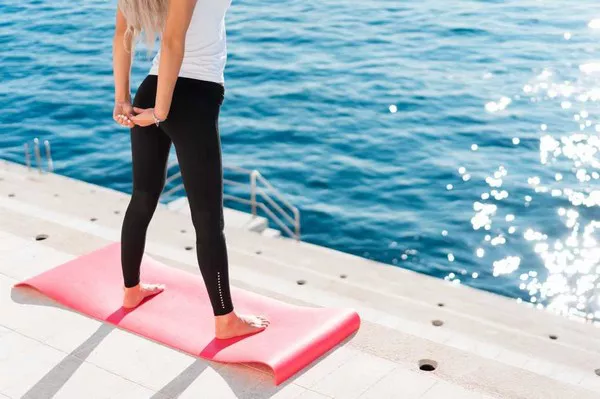Mandy Smith, a 43-year-old fitness enthusiast, had to take a year-long break from exercise following a car accident, during which she gained 100 pounds. Eager to regain her active lifestyle, Smith enrolled in bootcamp-style classes. Despite being a seasoned attendee of high-intensity workouts, her new body led a coach to suggest that the class might not be suitable for her.
This incident is just one example of the challenges, exclusion, and emotional trauma that individuals can face in fitness environments due to their weight. Although their journeys may vary, the stigma experienced by people like Smith is far from unique.
“When I looked around, everyone was really skinny,” says Angelica Wilson, a 30-year-old yoga instructor and fitness writer in New York City, reflecting on her early experiences at a yoga studio. She adds, “It’s just that when I looked around, everyone was really skinny.”
Darion Hughes, a 29-year-old content creator from Orlando, Florida, can also relate to feeling judged when plus-size men venture to the gym. Hughes, who provides lifestyle advice on TikTok as a “big boy adviser,” highlights the challenges faced by men with larger bodies when navigating fitness spaces. He emphasizes the vulnerability and intimidation experienced in the gym, saying, “We like to be in the background, not too upfront because we don’t feel necessarily worthy to be there.”
The feeling of unworthiness in the gym is not something gym-goers arrive at on their own, but rather a reflection of the pervasive weight bias that exists within the fitness industry. A study published in Obesity Reviews in 2018 revealed that 85% of exercise professionals contribute to perpetuating this stigma.
“For anyone, no matter their body type, the gym can be one of the most vulnerable and intimidating places,” explains Wilson. She shares her experiences of feeling singled out in group fitness classes with instructors questioning her expertise or offering unwarranted modifications.
Smith, who later became a fitness trainer and owner of Resistance Gym, an inclusive fitness facility in Concord, California, recalls instances where her clients were told they couldn’t perform certain exercises simply because of their size. Smith says, “If the class is doing a pull-up, they’ve been straight up told, ‘Well, you won’t be able to do that.'”
In addition to the judgment from fitness professionals, peer judgment can also be hurtful. Hughes describes the gym environment as “extremely toxic” and criticizes the practice of degrading individuals for not meeting certain expectations rather than celebrating their efforts.
Research indicates that weight stigma at the gym leads plus-size individuals to develop negative attitudes toward fitness spaces, discouraging them from exercising altogether due to anxiety about their bodies. As Smith explains, some people have never attempted fitness because they fear being judged.
Hughes, who recognizes the daunting nature of the gym, notes that his background in contact sports helped him overcome his initial fear. However, the trauma of being a larger person in a fitness environment extends beyond struggles with the gym, as studies suggest that individuals with larger bodies may develop maladaptive coping behaviors and experience weight bias internalization, unhealthy weight control practices, and poorer self-reported physical and emotional health as a result of weight stigma.
The fitness industry is gradually making strides towards inclusivity. Mandy Smith’s Resistance Gym, which opened in 2020, promotes the message that fitness is not defined by one’s appearance. The gym follows strict rules that prohibit comments on individuals’ bodies, uses inclusive language, and ensures that people are not judged for their movements. It also features size-inclusive machinery and provides larger locker rooms and lounges.
To further break down barriers to entry, Smith hosts a book club that draws people into the space without the pressure of participating in fitness activities. She is now sought after by fitness entrepreneurs worldwide to train individuals with larger bodies, recognizing the need for specialized expertise.
Angelica Wilson has built a network of plus-size fitness instructors who are committed to making fitness spaces more inclusive. She emphasizes, “We’re out here, we’re doing the work. So, if you want to find local representation, you probably can find it. It’s just going to take some digging.”


